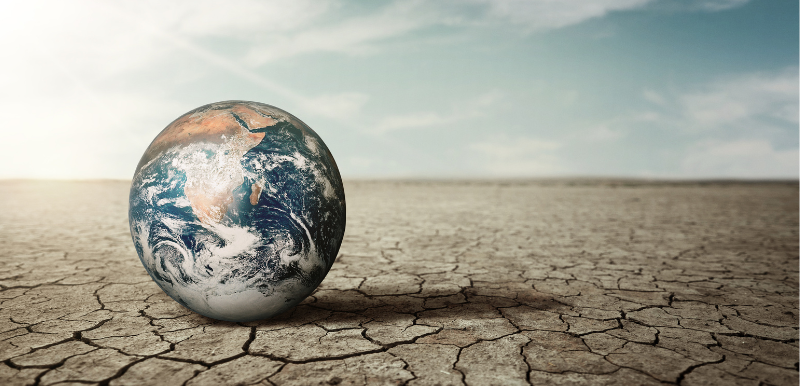Rethinking Business Ecosystems Part 1: What Systemic Issues Are Undermining Your Holistic Growth?

Image source: freepik
The word “ecosystem” has been used more often in modern times, along with buzzwords such as corporate social responsibility (CSR) and sustainability. We use these concepts but currently, as a society, we still think that we stand apart from the ecosystem in which we live and create. We’re very reactive, that’s why concepts enter our mainstream vocabulary—but years later, we still don’t understand their relevance.
Today’s organizations are urged to rethink their strategies in response to disruptions in their business ecosystem, which are more significant than ever before. Our society faces a multitude of systemic issues that severely impact both the environment and the socio-economic fabric. However, the current ways of management and operations were built for a much slower era, when change was not constant, and risks were less pervasive and global.
The volatility of global markets, growing societal demands, and the scary way information expands every year force business leaders to innovate not just in technology, but in purpose. Understanding the status quo within the business ecosystem allows us to determine weaknesses and gaps, explore our potential as a society, and find solutions tailored to current needs.
Our Current Business Ecosystem
Resource Depletion
Our current business models based on overexploitation lead to scarcity, increased costs, and long-term supply chain vulnerabilities. For instance, the fishing industry has faced challenges due to overfishing, which depletes fish stocks faster than they can regenerate, threatening marine ecosystems and the fishing industry itself. In the same way that the scarcity of human resources gave rise to the first industrial revolution, the current scarcity of natural resources will hopefully give rise to the next paradigm shift. This change is not merely about survival but about thriving in a future where the interconnectedness of global systems can no longer be ignored.
Invasive Practices
Business operations are characterized by a range of invasive practices that permeate everyday operations, impacting environments, societies, and individual well-being. For instance, excessive packaging in retail and takeaway services contributes to daily waste and environmental strain. The normalization of after-hours communication pressures employees to extend their workdays, blurring the boundaries between personal and professional life and impacting mental health and job satisfaction. Another environmental example of how unsustainable many of our industries is: It takes about 1800 gallons of water to produce a pair of jeans. Such practices often go unnoticed but cumulatively contribute to significant ecological damage and social injustices, undermining the quality of life and happiness of affected populations.
Read More: ESG’s Impact on Business: Driving Organizational Performance and Beyond
Institutional Inertia
Our infrastructure is fundamentally designed to support market-driven and hierarchical systems, making it incredibly difficult to shift directions and unsuitable for modern demands. This setup deeply embeds short-term profitability and centralized decision-making into the fabric of our organizations and society. As a result, initiatives prioritizing sustainability and inclusivity face resistance, as they challenge established norms.
Polarization
Polarization, the deep division of opinions and beliefs, disrupts teamwork and collaboration in businesses. It creates an individualistic culture that makes it hard for employees to work together effectively and slows down progress on important tasks. Instead of working like a well-functioning ecosystem, businesses struggle to unite diverse talents and develop inclusive strategies for success.
Unpredictable Disruptions
Unexpected disruptions worsen challenges, adding to the fragility of our societal landscape and jeopardizing sustainability. Events like natural disasters or conflicts can disrupt supply chains and markets, exacerbating resource scarcity. These occurrences underscore the vulnerability of our systems and emphasize the need for proactive and flexible measures.
Isolation and Competition
Competing in isolation refers to a company’s strategy of acting independently without engaging in significant cooperation or information-sharing with other entities, such as partners, competitors, or even internal stakeholders. It is a strategy focused on self-reliance and keeping strategic information and practices secret with the intention of gaining a competitive advantage by limiting external involvements and partnerships that could potentially expose business vulnerabilities or strategic intentions. This sometimes leads to myopic observations of the broader market dynamics and reduction of business agility to new challenges or even the harnessing of collective strengths within the company’s industry or ecosystem.
Streaming platforms like Netflix and HBO Max have faced challenges due to their secretive practices regarding viewership data. These companies choose not to disclose detailed statistics about how many people watch specific shows or movies, aiming to protect their competitive edge and prevent rivals from identifying their strengths and weaknesses. However, this secrecy can lead to issues such as distrust between content creators and the platforms and also affects advertisers and industry partners who rely on accurate data to make informed decisions.
Read More: Assessing A Company’s Competitive Power in the Marketplace
Is There Another Way?
We don’t have the luxury of continuing to operate this way. The age of short-termism has to end. It’s not unprecedented for the business landscape to radically adapt to global challenges: we have already transitioned from commanding hierarchy to incentives, from top-down management to collaboration. That transition to see businesses as part of a larger ecosystem (even larger than the “business ecosystem”) is imperative not only because of increasing resource scarcity but also because of increased demand from consumers, employees, and governments for sustainable and ethical business practices. This also means that businesses need to adapt not just due to CSR—although that should be reason enough—but in order to enhance creativity, innovation, and resilience, and make themselves viable long term.
Stay tuned for Part 2 of this article to explore how ecosystem thinking can be implemented to strategically enhance your organization.
***********
About the Author
Bori Péntek is a management consultant specializing in organizational development and human resource management. She helps businesses align their strategies, processes, and practices with their core values, focusing on human and social well-being. With experience in recruitment, HR, and operations management across sectors like sustainable construction, research, and instructional design, Bori emphasizes improving employee well-being, fostering inclusive cultures, and ensuring that organizations are resilient and socially responsible. She develops solutions that address systemic challenges and support long-term success.

Tags: Business, business ecosystems, business environment






